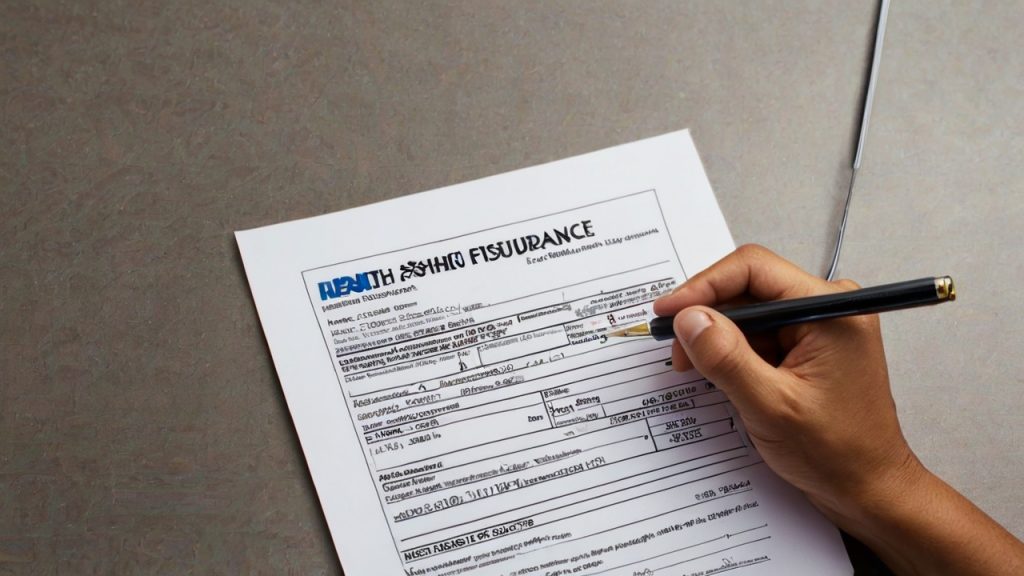Health Insurance Florida can often feel like a maze, especially in a diverse state like Florida where options and regulations vary widely. Whether you’re a new resident, a seasoned local, or simply someone trying to make sense of your coverage, understanding the landscape of health insurance is essential. This comprehensive guide aims to demystify health insurance in Florida by breaking down the types of coverage available, highlighting specific considerations for Florida residents, and helping you find affordable options. Additionally, we’ll walk you through the enrollment process, ensuring you’re well-equipped to make informed decisions about your health care needs. Let’s dive in and explore the ins and outs of navigating health insurance in the Sunshine State.
Contents of Health Insurance Florida
Understanding Health Insurance Plans
Health insurance is a critical component of managing healthcare costs, especially in a vibrant state like Florida. Understanding the various health insurance plans available can help you make informed choices that best suit your needs. Below, we break down the essential types of health insurance plans you may encounter.
Types of Health Insurance Plans
| Type of Plan | Description | Key Features |
|---|---|---|
| Health Maintenance Organization (HMO) | Requires members to choose a primary care physician (PCP) and get referrals to see specialists. |
|
| Preferred Provider Organization (PPO) | Offers more flexibility in choosing healthcare providers and doesn’t require referrals for specialists. |
|
| Exclusive Provider Organization (EPO) | Similar to a PPO but does not cover out-of-network care. Members must use network providers. |
|
| Point of Service (POS) | Combines features of HMO and PPO plans. Members choose a primary care physician and need referrals to see specialists. |
|
Health Insurance Florida Important Considerations
When selecting a health insurance plan in Florida, it’s vital to consider the following factors:
- Coverage Needs: Evaluate your healthcare requirements, including any pre-existing conditions or regular treatment needs.
- Network of Providers: Ensure that your preferred doctors and hospitals are included in the plan’s network.
- Premiums and Out-of-Pocket Costs: Compare monthly premiums, deductibles, co-pays, and out-of-pocket maximums.
- Prescription Drug Coverage: Confirm the plan covers your necessary prescriptions and understand your co-pay structures.
Choosing the right health insurance plan is a significant decision that impacts both your health and finances. By understanding the types of plans available and key considerations, you can navigate the complex world of health insurance in Florida with confidence.
Types of Coverage Available in Florida
When it comes to selecting health insurance in Florida, understanding the different types of coverage available is crucial. Each plan offers varying levels of benefits, costs, and limitations. Here, we outline the key types of coverage you can find in Florida:
- Health Maintenance Organization (HMO): HMO plans typically require members to choose a primary care physician (PCP) and obtain referrals to see specialists. They generally offer lower premiums and out-of-pocket costs but have a more limited network of providers.
- Preferred Provider Organization (PPO): PPOs provide more flexibility when choosing healthcare providers. Members can see any doctor or specialist within the network without a referral and can also go out of network, usually at a higher cost.
- Exclusive Provider Organization (EPO): EPO plans are similar to PPOs but do not cover any out-of-network care except in emergencies. They often feature lower premiums, making them an attractive option for many.
- Point of Service (POS): POS plans combine features of HMOs and PPOs. Members choose a primary care physician and need referrals to see specialists, but they can also go out of network for a higher cost.
- Catastrophic Health Insurance: This type of coverage is designed for young, healthy individuals who want to protect themselves against major health issues. It typically has lower premiums but comes with high deductibles and only covers essential health benefits after the deductible is met.
- Medicare: For individuals aged 65 and older or those with qualifying disabilities, Medicare provides health coverage that can be supplemented with additional plans, such as Medicare Advantage or Medicare Supplement plans.
- Medicaid: Florida’s Medicaid program offers coverage to eligible low-income individuals and families. This program provides comprehensive health services, including hospital and physician services, behavioral health services, and long-term care.
When choosing a health insurance plan, it’s important to consider your specific healthcare needs, budget, and the types of coverage that best suit your situation. Be sure to review the details of each plan carefully, as they can significantly impact your access to healthcare services.

Special Considerations for Florida Residents
Navigating health insurance in Florida comes with its own set of unique challenges and considerations. From understanding the diverse demographics to adjusting for the state’s specific health risks, Florida residents need to be aware of various factors that can influence their health insurance choices. Below are some key considerations:
1. Diverse Population
Florida is known for its diverse population, including a significant number of retirees and migrant workers. This demographic variation impacts the types of health coverage needed. For example:
- Retirees may require more chronic disease management services.
- Migrant workers may need temporary health insurance options.
2. High Prevalence of Chronic Conditions
Florida has a high prevalence of chronic health conditions, such as diabetes, heart disease, and arthritis. When selecting a health insurance plan, it’s crucial to consider:
- Availability of specialists in your network.
- Coverage for necessary medications and treatments.
3. Weather-Related Health Risks
The state’s susceptibility to hurricanes and heat waves means that residents might face unique health risks. During extreme weather events, having access to emergency services and urgent care facilities can be critical. Consider choosing a plan that provides:
- Access to telemedicine services during emergencies.
- Emergency coverage without high copays.
4. Medicaid Expansion Alternatives
While Florida has not expanded Medicaid under the Affordable Care Act, there are still options available. Residents should research:
- Federal health insurance programs for those who qualify.
- Low-income support services and resources.
5. Marketplace Options
Florida residents can explore health plans through the Health Insurance Marketplace. When comparing plans, pay attention to:
- Premium costs versus out-of-pocket expenses.
- Covered services, including preventative care.
6. Local Resources
Utilize local resources to help with understanding your options. Organizations providing assistance include:
- The Florida Department of Financial Services for insurance inquiries.
- Community health centers for coverage options and health services.
Being informed about these special considerations can greatly impact your access to quality health care and your overall health outcomes. Take the time to evaluate your options!
Finding Affordable Health Insurance Options
Finding the right health insurance can be daunting, especially in a state like Florida where options can be plentiful yet complicated. Here are some practical tips to assist you in finding affordable health insurance options that suit your needs.
1. Know Your Coverage Needs
Before you start shopping for health insurance, it’s essential to understand what coverage you need. Consider the following:
- Type of Plan: Do you need a basic plan, or are you looking for comprehensive coverage?
- Doctors and Specialists: Are your current healthcare providers within the plan’s network?
- Prescription Drugs: Do you require ongoing medications that need to be covered?
2. Explore Health Insurance Florida Marketplaces
The Health Insurance Marketplace in Florida is a valuable resource for individuals looking for affordable insurance. You can compare plans side by side and find options that work within your budget. Make sure to take advantage of:
| Marketplace Option | Description |
|---|---|
| HealthCare.gov | The official federal site for health insurance enrollment. |
| Local ACA Navigators | Local organizations that offer free assistance in finding the right plan. |
| State-Specific Programs | Programs unique to Florida for low-income residents. |
3. Check for Financial Assistance
Many residents underestimate financial help available to them. Depending on your income, you may qualify for:
Premium Tax Credits that reduce monthly payments, and cost-sharing reductions that lower out-of-pocket costs.
Make sure to check if your household income fits within the federal guidelines.
4. Consider Short-Term Insurance Plans
If you’re in need of temporary coverage, short-term health insurance plans can be a viable option. These plans cover most medical services but may not include as comprehensive benefits as traditional insurance. It’s a way to bridge gaps, especially during open enrollment periods.
5. Seek Professional Advice
Sometimes, the best course of action is consulting with a health insurance broker. They can help you navigate complex options and find plans tailored to your unique situation.
6. Review and Compare Plans Regularly
Once you’ve selected a plan, it’s vital to review your coverage annually. Your health needs and financial situation may change, so make sure you’re still getting the most affordable health insurance option.
By following these steps and being proactive about your health insurance options, you can find a plan that provides the coverage you need at a price you can afford.
Navigating the Enrollment Process
Navigating the enrollment process for health insurance in Florida can be a daunting task, but understanding the steps involved can make it much simpler. Below, we break down the essential components of enrolling in a health insurance plan.

1. Determine Your Eligibility
Before you can enroll, it’s important to determine your eligibility. Florida residents can qualify for different types of insurance based on:
- Employment status
- Income level
- Age
- Family size
2. Choose the Right Enrollment Period
Enrollment periods dictate when you can sign up for a health insurance plan. There are generally two types of enrollment periods:
- Open Enrollment Period: This is the annual period when you can enroll in a health plan, typically occurring from November 1 to December 15.
- Special Enrollment Period: This allows you to enroll outside the open enrollment period if you experience qualifying life events such as marriage, birth of a child, or loss of other coverage.
3. Gather Necessary Documentation
Before you begin the enrollment process, gather all necessary documents. This may include:
- Proof of identity (e.g., driver’s license or passport)
- Social Security numbers for all household members
- Income information (e.g., pay stubs, tax returns)
- Current and prior health insurance information
4. Utilize Online Resources
In today’s digital age, there are many online resources to assist you with the enrollment process. The Health Insurance Marketplace is a great place to start. You can:
- Compare different plans and their coverage options
- Check if you qualify for subsidies
- Complete your application online
5. Seek Assistance if Needed
If you find the process overwhelming, don’t hesitate to seek help. You can reach out to:
- Local insurance agents
- Community organizations
- Healthcare navigators
These professionals can assist you in understanding your options and selecting the plan that best fits your needs.
6. Submit Your Application
Once you have chosen a plan, complete your application. Make sure to:
- Double-check all information
- Submit any required documents
- Keep a copy of your application for your records
7. Review Your Coverage
After enrollment, carefully review your coverage details. Make sure you understand:
- Your monthly premium costs
- Deductibles and copayments
- Doctor and hospital networks
Enrolling in health insurance is a critical step toward ensuring your health and well-being. By following the steps outlined above, Florida residents can navigate the enrollment process with confidence and choose the healthcare solution that best fits their needs.
Frequently Asked Questions
What are the basic types of health insurance Florida?
In Florida, the main types of health insurance include employer-sponsored plans, individual plans, Medicaid, and Medicare.
How does Florida’s marketplace for health insurance work?
Florida utilizes the federal Health Insurance Marketplace, where residents can compare and purchase health plans during the open enrollment period.
What factors should I consider when choosing a health insurance plan in Florida?
When choosing a health insurance plan in Florida, consider factors such as premium costs, deductibles, network providers, coverage options, and prescription drug benefits.
Are there any specific requirements for enrolling in Medicaid in Florida?
Yes, to enroll in Medicaid in Florida, individuals must meet certain income and residency requirements and belong to an eligible category, such as families with children or individuals with disabilities.
What should I know about out-of-pocket expenses in Florida health insurance plans?
Out-of-pocket expenses can include premiums, deductibles, copayments, and coinsurance. It’s important to understand how these costs affect your overall healthcare budget.
How can I appeal a denied health insurance claim in Florida?
To appeal a denied health insurance claim in Florida, you can contact your insurance provider for their specific appeal process and gather necessary documentation to support your case.
What resources are available for Floridians seeking help with health insurance?
Floridians can access resources such as the Florida Department of Financial Services, local health departments, and organizations like the Florida Health Insurance Advisory Board for guidance and assistance.





